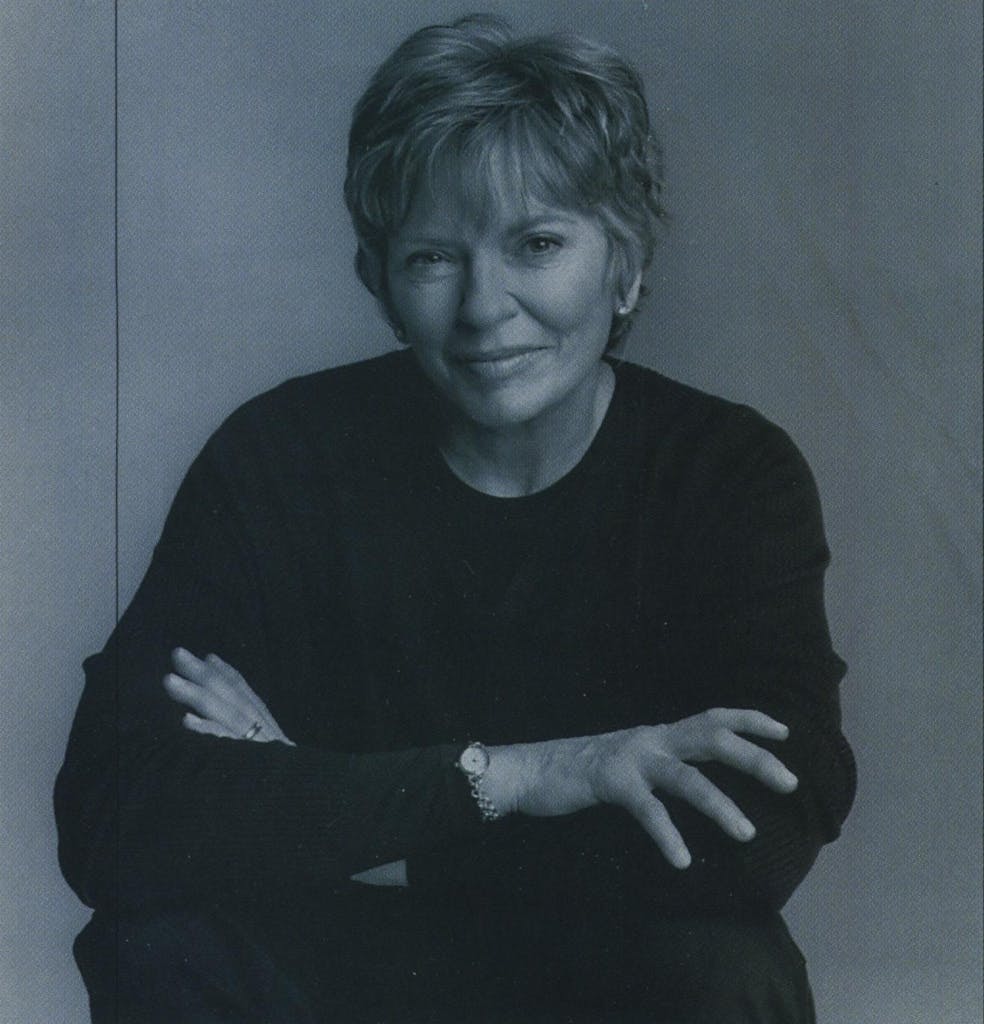
October is National Breast Cancer Awareness Month, which I know has special significance for you. When was your cancer first diagnosed?
In February of 1992. I lost both my breasts and all my hair. My hair happily grew back. And I lived!
How soon did you tell people that you had cancer?
I never meant to keep it a secret. My problem was that after so many years as a journalist, many of my friends were journalists. I said to them, “Look, I will go public but not just yet. I’m still trying to get my arms around this. I’d really like it if you don’t print or broadcast anything.” And they were very good. They didn’t for three months.
That’s showing a lot of restraint.
Marvelous restraint. Then a male reporter from USA Today called my assistant and said, “We’re going to go with this story tomorrow.” My assistant told him she wouldn’t confirm it, and he said, “You don’t have to. Everybody in our business knows that Linda Ellerbee had to have both her tits cut off.” They went with the story the next day—more elegantly worded, I must say.
How did you handle it?
It turned out to be an enormous break for me. Women began to stop me on the street and write me and share their own experiences and courage and give me what I needed to face the disease honestly. All of a sudden I belonged to the world’s biggest support group. Women still come up to me and whisper, “I’m in the club,” or they’ll say straight out, “I’ve had breast cancer.”
Why do you think other forms of cancer don’t seem to have the same stigma?
Breasts are a big deal in America—make no mistake about it. I was a size 36D, and I hated having big breasts, but it was better than having no breasts. The number of women who think they won’t still be a “woman” if they lose their breasts is astounding. When a woman thinks that way, and she finds a lump, she is less likely to go in because she thinks she won’t be a real woman.
What about the recent reports questioning the usefulness of mammograms?
Mammography is an incomplete tool. They know how to cut us, burn us, and poison us, and often it works. But there is still a great deal that is not known, although there is so much research going on. So you have all of these studies being published independently and not yet correlated with one another. We in the media often raise peoples’ anxieties unnecessarily.
What’s your advice to women?
Have a mammogram every year if you’re over forty. I’m alive today because of a mammogram. If you’re a young woman, do a self-examination of your breasts once a month. It’s so easy to let it slip by. I had stopped having mammograms because my breasts were fibrous, and I would have false alarms. I would have a mammogram, and it would turn out not to be anything, so I decided that mammograms were useless. But when I was 47, I found a lump in my breast, and it just didn’t feel right. This one hurt. My doctor said, “Don’t worry. If it hurts it’s not cancer.” But that’s not true. I’m walking proof of it.





